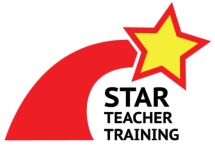EFL students in preschool and primary school have to move! They need to stand and sit, run & jump, act & mime, twist & turn, dance and play games.
Their bodies are full of energy and their brains need to practice moving their arms and legs, their hands and fingers. This is so they can better safely navigate the world and successfully do the things they want. Children feel a natural desire to frequently move. The younger they are, the more often they need to move – even every five minutes.
Movement also helps students learn better. It increases blood flow to the brain and helps them make stronger neural connections. Finally, moving & playing can be a lot of fun for children and that helps them to focus longer and more intently.
Related Post: Movement
Unfortunately, students in many classes don’t get enough opportunities to move in class. Their classrooms are too small, tight, and packed with desks and chairs. Or, their teachers don’t arrange activities for them that let them move.
This makes it difficult for preschool and primary school EFL students to focus, learn, and behave well.
In this video, see why the lack of movement causes problems in large EFL classes, and also check out an activity, Flashcard Safari, that you can use to get your students the movement they need.
Related Post: This EFL Listening Game Involves Everyone: Flashcard Safari






